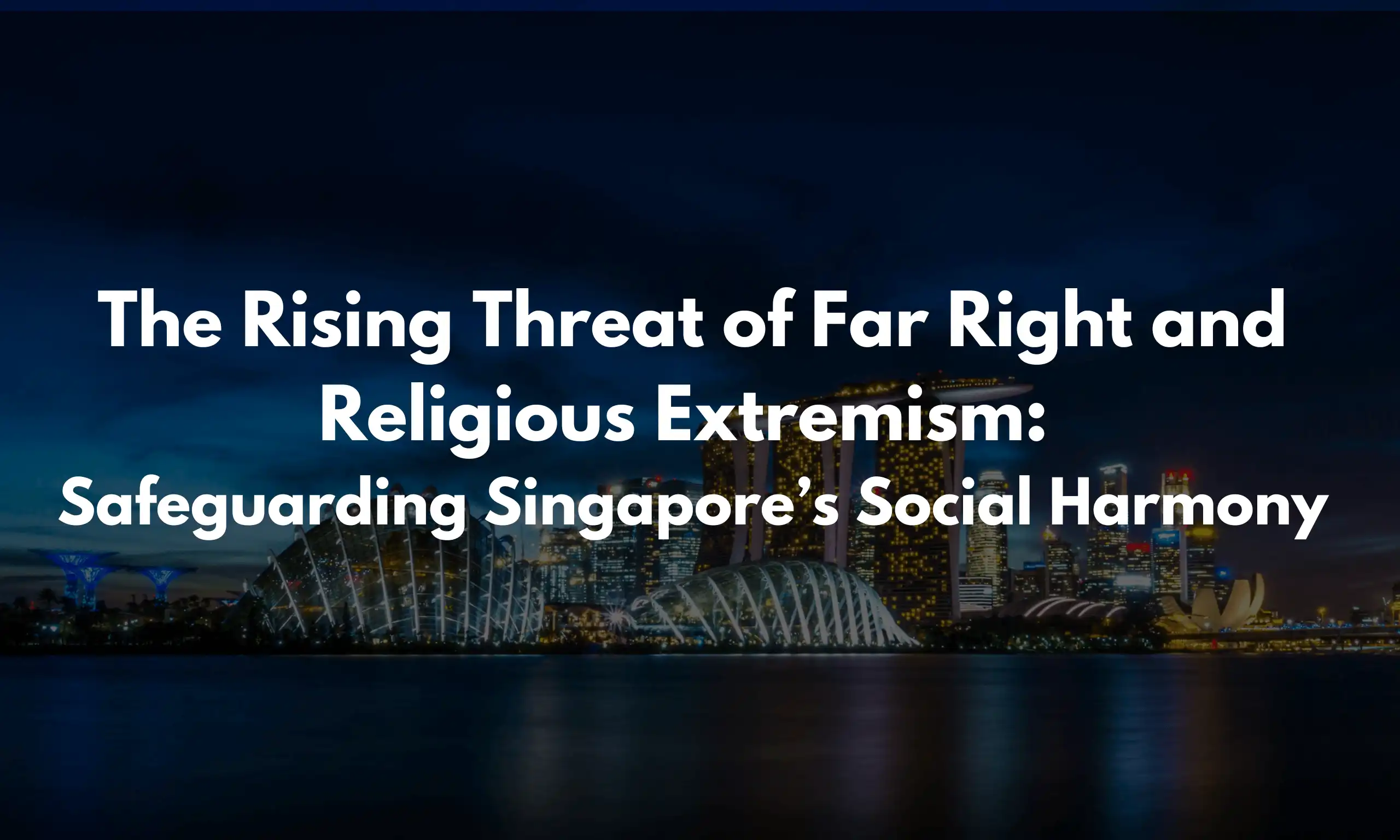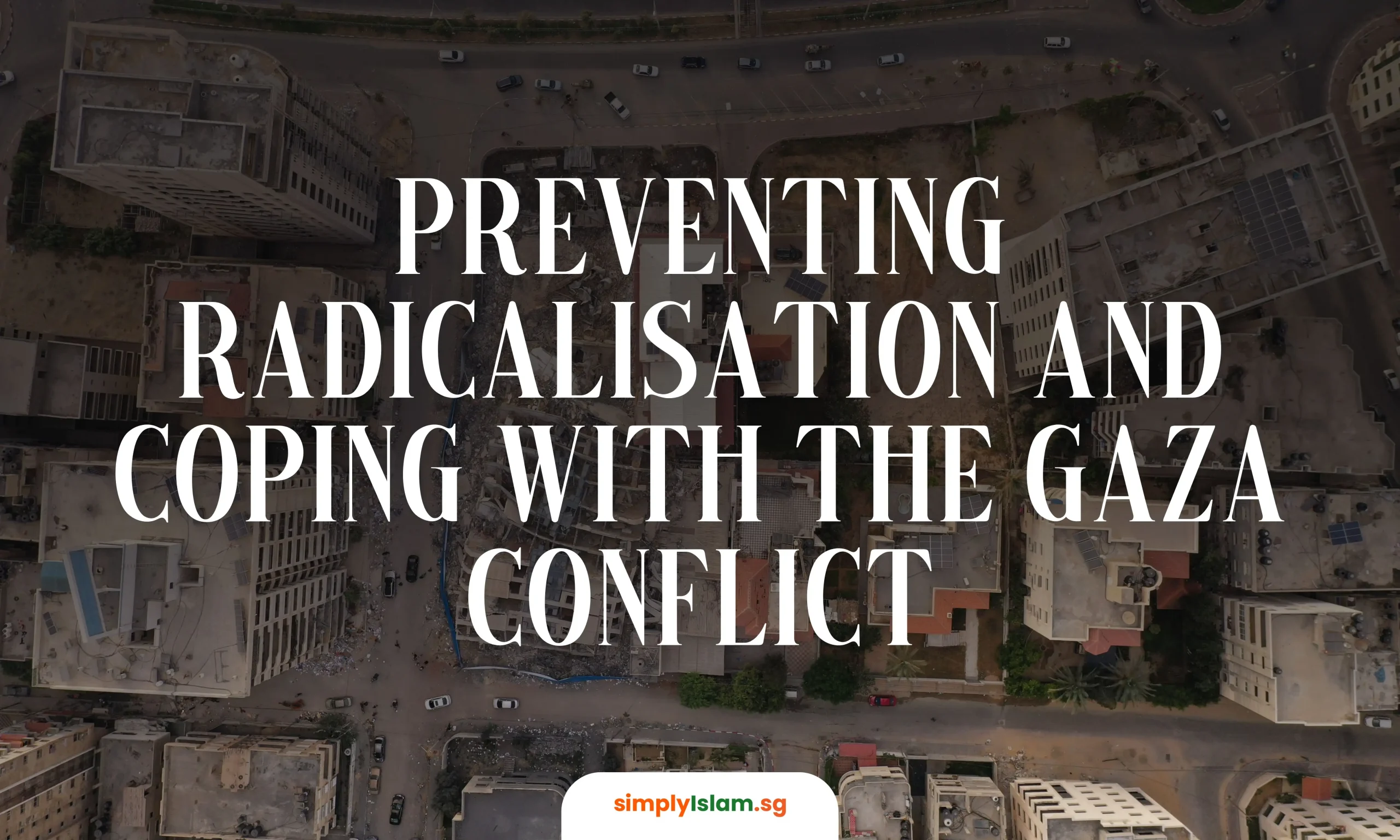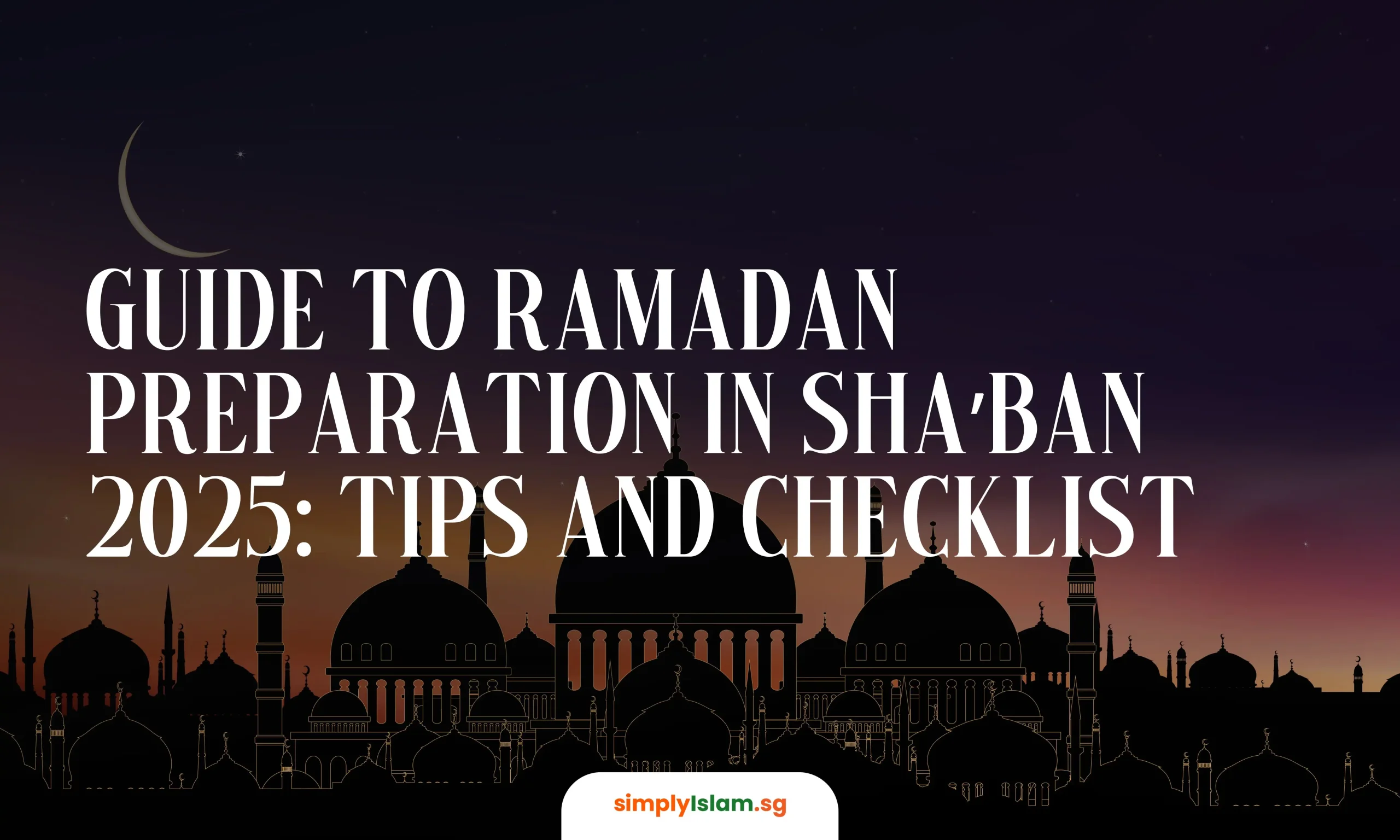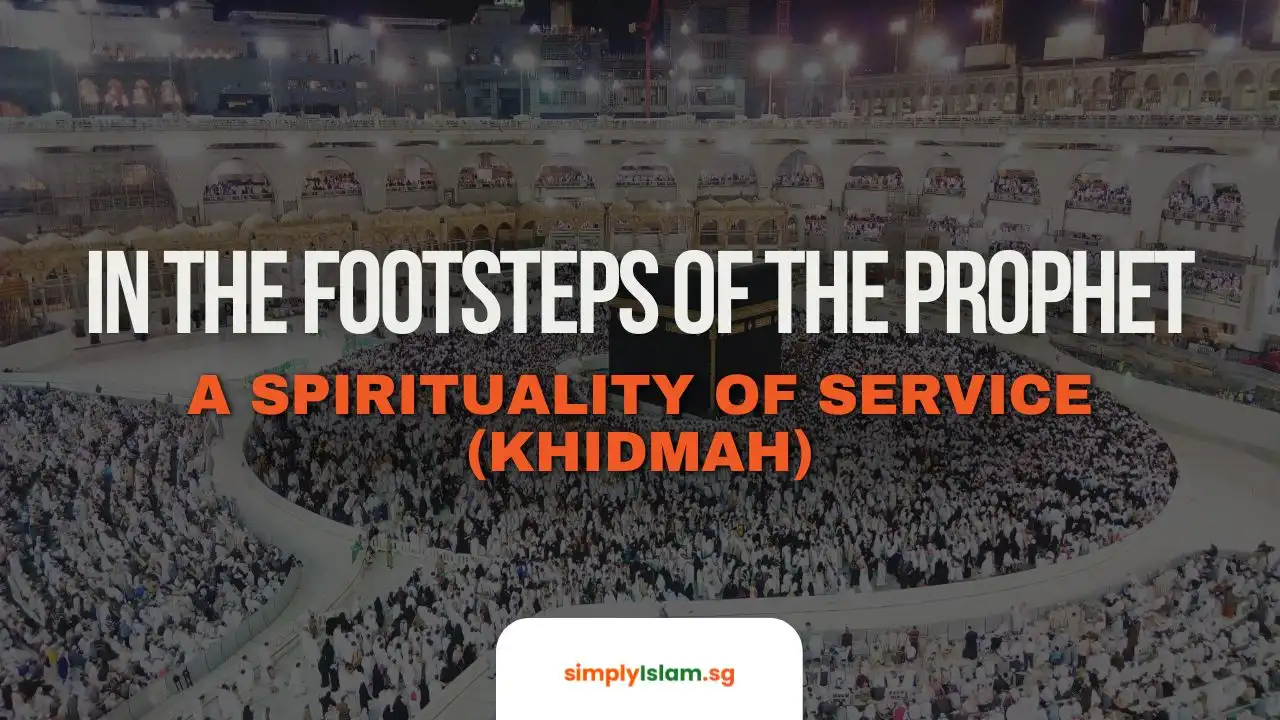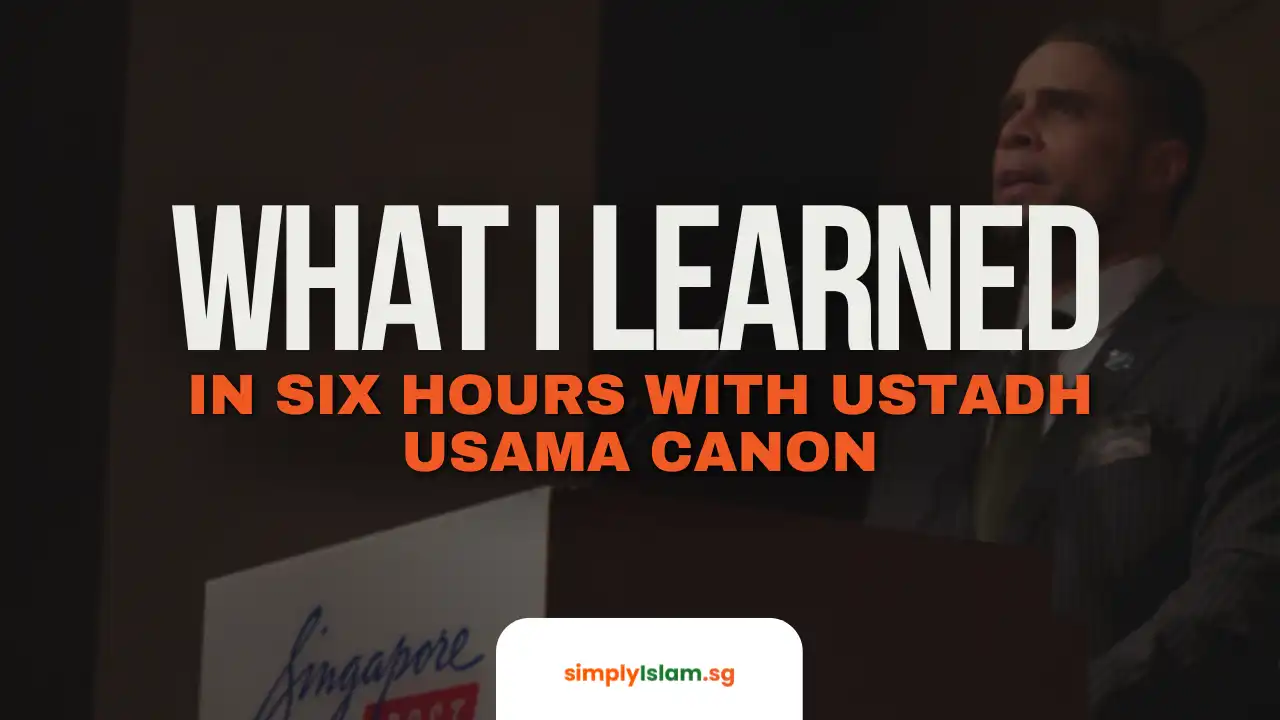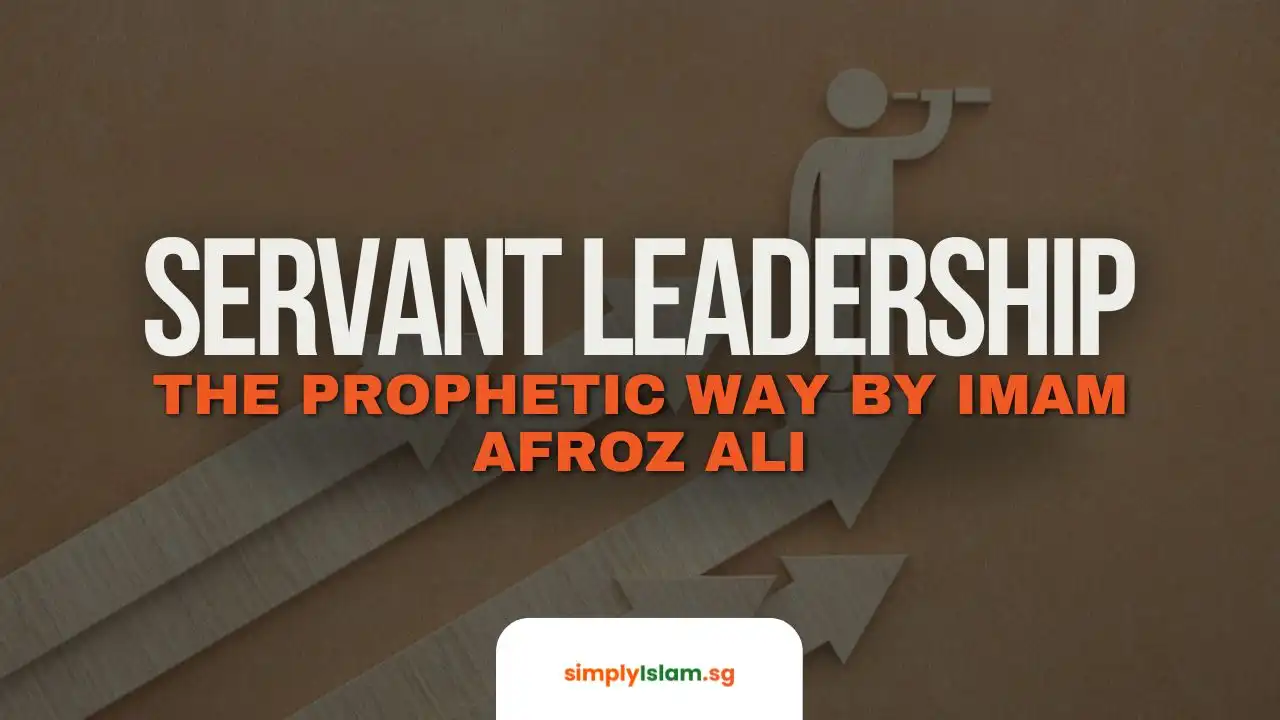
He ﷺ Chose Mercy: Prophetic Responses to Hate, Hurt, and Hostility Reflections for Singaporean Muslims

Prophetic Mercy and the Common Good: Reflections for Singaporean Muslims
By Team SimplyIslam
In the name of Allah, Most Beneficent, Most Merciful.
Allah’s Peace and Blessings be upon the Beloved Prophet Muhammad, his family and companions.
Introduction
Among the most distinguished attribute of the Prophet Muhammad ﷺ is his embodiment of Rahmah (Mercy), Hilm (Forbearance), and Sabr (Patience), particularly in the face of adversity, insult and hostility. These qualities formed the very essence of his character and conduct. He is rahmatan lil-‘alamin, a walking manifestation of the Qur’anic verse,
وَمَآ أَرْسَلْنَـٰكَ إِلَّا رَحْمَةًۭ لِّلْعَـٰلَمِينَ
It was only as a mercy that We sent you [Prophet] to all people.
[Surah Al-Anbiya, 21:107]
The Prophet’s ﷺ wife, ‘Aishah, was asked about the Prophet’s character, and she said “Verily, the character of the Prophet of Allah was the Qur’an.” [Sahih Muslim]. She also said,
“He was not obscene, nor uttering obscenities, nor screaming in the markets, he would not return an evil with an evil, but rather he was pardoning and forgiving”.
[Sunan al-Tirmidhi]
In today’s fractured world Muslims are frequently faced with moral and social tensions —provocations, misrepresentations, or misunderstandings that test both personal faith and public conduct. In such situations, the Prophet’s ﷺ responses offer timeless guidance. His ability to embody restraint when provoked, to uphold justice without vindictiveness, and to choose elevation over escalation, all provide a model for ethical engagement in a diverse and sensitive environment.
This article seeks to explore key dimensions of the Prophetic model – his moral leadership and strategic restraint – in the context of maslaha (public good). By drawing on foundational Islamic texts we aim to demonstrate that Prophetic mercy is not a retreat from justice but a higher path towards it, a transformative force that can heal, unite, and elevate communities. It is through a balanced approach that Muslims today can navigate the complexities of the modern world while remaining firmly anchored in the Prophetic legacy.
1. Principled Restraint
We learnt from the Prophetic biography (Sirah Nabawiyyah) that after the demise of the Prophet’s uncle, Abu Talib, Prophet Muhammad’s ﷺ life was in danger, so he went to Taif hoping to find a receptive audience. Upon reaching Taif, the Prophet ﷺ visited leaders of Arab tribes and presented to them the message and beauty of Islam. The Taif community rejected his message and abused him physically, pelting him with stones and bloodied him. The Prophet Muhammad ﷺ left the town in a woeful plight, maintained his calm, and choose not to retaliate or take revenge. Instead, he turned to Allah, pouring his heart out in a powerful prayer of humility and mercy, exemplifying a profound moment of moral instruction:
“O Allah, to You I complain of my weakness, my lack of support and the humiliation I am made to receive…” (Ibn Ishaq, Sirat Rasul Allah)
When the Angel of the Mountains offered the chance to destroy the people of Taif, the Prophet ﷺ rejected and replied:
“No. I hope that Allah will bring forth from their descendants people who will worship Allah alone, not associating anything with Him.” [Sahih Bukhari]
This was not a moment of weakness but principled restraint and unwavering faith in human potential and ability. The Prophetic conduct of mercy is a model for all times.
2. Choosing the Higher Moral Ideal
The Holy Qur’an repeatedly encourages believers to choose the higher moral path. Allah ﷻ said,
وَلَا تَسْتَوِى ٱلْحَسَنَةُ وَلَا ٱلسَّيِّئَةُ ۚ ٱدْفَعْ بِٱلَّتِى هِىَ أَحْسَنُ فَإِذَا ٱلَّذِى بَيْنَكَ وَبَيْنَهُۥ عَدَٰوَةٌۭ كَأَنَّهُۥ وَلِىٌّ حَمِيمٌۭ
Repel evil with that which is better; then behold, the one between whom and you there was enmity will become as if he were a devoted friend. [Surah Fussilat, 41:34]
وَلْيَعْفُوا۟ وَلْيَصْفَحُوٓا۟ ۗ أَلَا تُحِبُّونَ أَن يَغْفِرَ ٱللَّهُ لَكُمْ ۗ وَٱللَّهُ غَفُورٌۭ رَّحِيمٌ
Let them pardon and overlook. Would you not love for Allah to forgive you? And Allah is Forgiving and Merciful. [Surah An-Nur, 24:22]
These verses do not undermine justice nor preclude it. Instead, they point to a higher ideal that believers are encouraged to aspire toward when appropriate. Justice is a right, but forgiveness is a virtue.
3. Between Mercy and Justice
Indeed, the Prophet ﷺ did implement justice when warranted and execute punishment with divine commands. Yet, it is important to distinguish between justice in legal or military contexts and public responses to verbal offences or mockery.
Even when insulted and mocked by poets like Abdulah Ibn Abi Sarh, or the Quraysh elders, the Prophet ﷺ often exercised restraint. On many occasions, he forgave individuals who plotted against him once they sought forgiveness or repented, such as Hind Ibn ‘Utbah (Wife of Abu Sufyan) and Wahshi after the conquest of Makkah. He extended mercy and compassion even to those who had caused him much grief.
There are hundreds of ahadith by Prophet Muhammad ﷺ across all the significant hadith collections that emphasise mercy (rahmah) as a core virtue in Islam. The Prophet ﷺ exhorted believers to show mercy:
‘Umar was heard to say, “Anyone who does not show mercy will not be shown mercy. Anyone who does not forgive will not be forgiven. Anyone who does not pardon will not be pardoned or protected.” [Al-Adab Al-Mufrad, Imam Bukhari]
Abdullah ibn Amr reported: The Messenger of Allah ﷺ said, “The merciful will be shown mercy by the Most Merciful. Be merciful to those on the earth, and the One in the heavens will have mercy upon you.” [Sunan al-Tirmidhī]
An important example of the Prophet’s ﷺ mercy overcoming his rightful anger is the incident of Zaynab bint Al-Harith who poisoned his food. After the Battle of Khaybar, she prepared a poisoned lamb for the Prophet ﷺ as an act of vengeance. He took one bite, sensed the poison, and spat it out, but one of his companions, Bishr ibn Al-Bara (ra), died from consuming it. When confronted, she confessed, saying, “I wanted to kill you.”
The Prophet’s ﷺ response? Instead of executing her in anger, he forgave her – some narrations indicated that she embraced Islam later. This was a moment where personal vengeance was justified, yet the Prophet ﷺ chose mercy over wrath, a defining example of his character.
And then we have the famous incident of the bedouin who urinated in the Mosque, infuriating the companions who rushed to beat him,
Allah’s Messenger (ﷺ) ordered them to leave him and pour a bucket or a tumbler (full) of water over the place where he has passed urine. The Prophet then said, ” You have been sent to make things easy (for the people) and you have not been sent to make things difficult for them.” [Sahih Bukhari]
There are hundreds if not thousands of such exemplary conduct of mercy exemplified by Prophet Muhammad ﷺ. They are not just some isolated acts but a reflection of the essence of the Prophet ﷺ as rahmatan lil alamin (mercy to the worlds), as described in the Qur’an:
وَمَآ أَرْسَلْنَـٰكَ إِلَّا رَحْمَةًۭ لِّلْعَـٰلَمِينَ
“And We have not sent you, [O Muhammad], except as a mercy to the worlds.” [Qur’an 21:107]
The Prophetic mercy does not negate justice, rather it informed and elevated it. Seeking social justice and embodying rahmah or mercy do not contradict each other; they are situationally applied and harmoniously embodied. An emphasis on mercy does not exclude the pursuit of justice.
When anger was justified, he (ﷺ) chose patience. When punishment was due, he offered forgiveness. This was not weakness but rather strength wrapped in mercy and showed his immense compassion and mercy, even for his haters and enemies.
4. Justice Does Not Equate to Retaliation or Retribution
While justice is an important tenet of Islam, it must not be conflated with public condemnation, retaliation or vindictive rhetoric. The Islamic conception of justice is far more holistic, encompassing not only punishment, but also reform, rectification, regeneration, restoration and deterrence. Allah ﷻ reminds us in the Qur’an:
إِنَّ ٱللَّهَ يَأْمُرُ بِٱلْعَدْلِ وَٱلْإِحْسَـٰنِ وَإِيتَآئِ ذِى ٱلْقُرْبَىٰ وَيَنْهَىٰ عَنِ ٱلْفَحْشَآءِ وَٱلْمُنكَرِ وَٱلْبَغْىِ ۚ يَعِظُكُمْ لَعَلَّكُمْ تَذَكَّرُونَ
“Indeed, Allah commands justice, excellence, and giving to relatives and forbids immorality, bad conduct, and oppression.” (Surah An-Nahl, 16:90)
Justice (‘adl) constitutes a collective obligation (fard al-kifayah) to ensure the protection of society, whereas mercy is cultivated as an individual moral virtue. Both are essential dimensions of the Prophetic tradition. Distortion occurs not when one is given precedence over the other, but when a principled balance between the two is lost.
History offers powerful lessons – we can learn from Umar Mukhtar, a fearless and principled freedom fighter who led Libya’s resistance against Italian colonisation. When he was asked to kill the Italian prisoners, he said, “We are not a people who kill our prisoners”. When a companion protested, “But they do it to us”, Umar Mukhtar replied, “They are not our teachers”.
Indeed, our greatest teacher is Prophet Muhammad ﷺ followed by his companions, family members, and the ulama or scholars, described as the “heirs of the Prophets” [Sunan al-Tirmidhi]. We take our lessons from their Prophetic conduct within the context of our zaman (time and period).
Thus, the pursuit of justice must always be exercised with principled restraint, never descending into vengeance or emotional excess. Justice must be framed by a higher ethical vision that prioritises social harmony and the greater public good (maslaha). Our religious conviction must be expressed with wisdom (hikmah), foresight, and compassion, as exemplified by the Prophet Muhammad ﷺ.
5. The Role of Maslaha or Public Good in Modern Contexts
In Singapore, where multiple faiths and cultures coexist, the principles of justice and mercy must be situated within a broader framework of social harmony and interreligious understanding. This requires a careful and continual negotiation of religious expressions and convictions while not compromising the sensitivities of others in the public sphere. Within Islamic jurisprudence, the concept of maslaha (مصلحة) – meaning public interest, welfare, or common good – offers an essential ethical lens to approach such matters.
Derived from a root that implies “reconciliation” or “improvement,” maslaha refers to actions or rulings that aim to secure benefit (jalb al-masalih) and avert harm (dar’ al-mafasid) for individuals and society. It serves as a higher objective (maqasid) of the Shariah and allows scholars to adapt rulings when rigid applications may cause undue harm or conflict in changing contexts.
In a pluralistic setting like Singapore, maslaha provides a valuable framework for Muslims to uphold their religious values while actively contributing to social cohesion, ensuring that justice is not pursued in isolation but harmonised with mercy, wisdom, and the collective well-being of society.
6. Anger Must Be Directed, Not Dismissed
Anger, in and of itself, is not inherently wrong. It is a natural human emotion and can, at times, be justified – the Prophet ﷺ became angry when sacred principles were violated. However, his anger was always principled, never impulsive nor vengeful, but rooted in justice, compassion and a concern for the greater good. Allah praises those who exercise self-restraint in moments of anger, as a quality of the muttaqin or the God-conscious:
ٱلَّذِينَ يُنفِقُونَ فِى ٱلسَّرَّآءِ وَٱلضَّرَّآءِ وَٱلْكَـٰظِمِينَ ٱلْغَيْظَ وَٱلْعَافِينَ عَنِ ٱلنَّاسِ ۗ وَٱللَّهُ يُحِبُّ ٱلْمُحْسِنِينَ
Those who give, both in prosperity and adversity, who restrain their anger and pardon people – God loves those who do good. [Surah Ali ‘Imran, 3:134]
Likewise, the Prophet ﷺ also reminded,
لَيْسَ الشَّدِيدُ بِالصُّرَعَةِ، إِنَّمَا الشَّدِيدُ الَّذِي يَمْلِكُ نَفْسَهُ عِنْدَ الْغَضَبِ
“The strong is not the one who overcomes others by force, but the strong is the one who controls himself while in anger.” [Sahih Bukhari]
Islam does not call for the suppression of emotion, but for its ethical regulation. Anger, when channelled with wisdom and justice, can become a force for reform and rectification. But when left unchecked, it can devolve into harm, division, and injustice. The Prophetic model teaches us to transform anger into constructive action – to respond not with vengeance, but with vision, purpose, and restraint, all eventually for the common good or maslaha. True strength lies not in loud outbursts or harsh retaliation, but in the calm discipline of the heart that seeks justice without compromising mercy.
7. Responding with Moral Leadership & Forbearance
The Prophet Muhammad ﷺ demonstrated an excellent model of leadership by engaging his fiercest critics with dignity, wisdom, and a profound commitment to the long-term public good (maslaha). One of the most potent examples of the Prophet’s ﷺ foresight and strategic patience is found in the Treaty of Hudaybiyah. Though the terms of the treaty seemed to favour the Quraysh and deeply troubled many of the companions, particularly ‘Umar ibn al-Khattab (ra), who voiced his anguish and concern, the Prophet ﷺ remained composed and resolute and reassured his followers by saying: “I am the Messenger of Allah, and He will never forsake me.” [Sahih al-Bukhari].
Despite appearing as a concession, the treaty, in fact, opened a new chapter of peace and stability, allowing the message of Islam to spread more freely. It reflected the Prophet’s ﷺ unparalleled insight: that true strength lies not in immediate victory but in enduring principles, restraint, and the pursuit of a higher moral vision for society. What seemed like a setback proved to be a turning point – the treaty opened the way for the conquest of Mecca. The Prophet ﷺ exemplified extraordinary emotional intelligence and spiritual trust, showing that what appears as a loss in the short term may, in truth, be a decisive victory in the long run.
Sometimes, we may view our religious leaders’ response as an endorsement of a provocative action or statement, but instead they are taking the route affirming the Prophetic principle of forbearance and the giving of sound and sincere nasiha (advice). Their engagement reflects an effort to mitigate a tense situation through nasihah (advice), not enmity. The Prophet (ﷺ) said,
“Allah is Forbearer and He loves forbearance, and rewards for forbearance while He does not reward severity, and does not give for any thing besides it (forbearance).” [Sahih Muslim]
“The deen (religion) is nasiha (sincere advice).” [Sahih Muslim]
In times of tension or provocation, our response must be guided not by the urgency to retaliate, but by the deeper wisdom of the Prophetic example. True moral leadership is not always loud or confrontational – it is often quiet, deliberate, and principled. It chooses forbearance not out of fear or passivity, but out of strength, foresight, and unwavering trust in Allah’s divine plan. Just as the Prophet ﷺ transformed moments of adversity into lasting triumphs through patience and wisdom, so too must we strive to respond with grace, uphold justice with compassion, and offer nasiha with sincerity. In doing so, we preserve the dignity of our faith and nurture the moral fabric of our community.
Conclusion
Islamic scholars consistently affirm that the mission of Prophet Muhammad ﷺ was overwhelmingly rooted in mercy and compassion, even as he upheld justice. Mercy (rahmah) was not an occasional gesture; it was the dominant theme of his personality, teachings, and interactions—whether with companions, strangers, or even adversaries. The Prophet ﷺ embodied a mercy so vast that Allah ﷻ Himself described the Prophet as “a mercy to the worlds” (Surah Al-Anbiya, 21:107). Vengeance, harshness, or unbridled anger had no place in his prophetic character.
Our scholars remind us that receiving Allah’s forgiveness and Divine Mercy depends is intimately tied to nurturing a heart that believes in His boundless Compassion and Mercy. We are called to hold beautiful opinions (husn al-zann) of Allah and His Messenger ﷺ. The Prophet advised:
“Let not any of you die except while thinking well of Allah.” [Sahih Muslim]
This ethos of hope, balance, and optimism also underpins our approach to religious practice. Abu Hurairah (May Allah be pleased with him) narrated that the Prophet ﷺ said:
“The religion (of Islam) is easy, and whoever makes the religion a rigour, it will overpower him. So, follow a middle course (in worship); if you can’t do this, do something near to it and give glad tidings and seek help (of Allah) at morn and at dusk and some part of night”.
[Sahih Bukhari]
These teachings compel us, especially as Muslims in Singapore’s multireligious and multicultural setting, to reflect carefully on our conduct. Every interaction, whether with Muslims or non-Muslims, becomes a form of da’wah and education – a subtle invitation towards the beauty of Islam. We are ambassadors of Prophetic Muhammad ﷺ, tasked not merely with defending faith through words, but with embodying its most noble attributes through our actions.
In a pluralistic society like Singapore, the Prophetic balance is not only relevant but essential. Upholding religious conviction must be harmonised with social responsibility and public good (maslaha). Our words, actions, and responses, especially in moments of tension, are opportunities to reflect the Prophetic example and to offer sincere nasiha rather than inflamed reactions. Choosing mercy is not an act of weakness, rather it is a hallmark of spiritual maturity and a vision that transcends short-term emotions for long-term transformation.
Central to this path is education. In an age where populist rhetoric often seeks to inflame passions and polarise communities, we must anchor ourselves firmly in authentic Islamic knowledge. It is crucial to study with scholars who are recognised for their moderation, wisdom, and fidelity to the Prophetic spirit. In Singapore, this means seeking guidance from MUIS-accredited institutions, such as our local mosques, Islamic Education Centres and Providers (IECPs), and from asatizah registered under the Asatizah Recognition Scheme (ARS).
By pursuing sound knowledge, embodying prophetic virtues, and acting with wisdom and mercy, we not only safeguard our own spiritual well-being but also contribute meaningfully to the peace, cohesion, and flourishing of the society in which we live – being an embodiment of the Prophet Muhammad’s ﷺ attribute of rahmatan lil-‘alamin (mercy to all).

